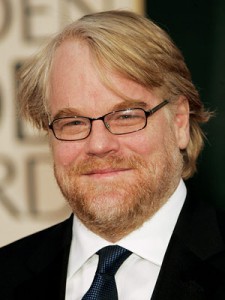A Humanist’s Favorite Philip Seymour Hoffman Films

With a repertoire like the late Philip Seymour Hoffman’s, there’s no question that the entertainment industry has lost a true artist. In films like Scent of a Woman, Capote, and The Master, Hoffman’s extraordinary ability to capture his character rightfully led to his many award nominations and wins.
As a lover of the silver screen, I made sure I never missed a performance by an actor of Philip Seymour Hoffman’s caliber. Even his supporting roles had a way of leaving an impression, whether it was the shy film crew member Scotty J. from Boogie Nights, the personal assistant Brandt from The Big Lebowski, or The Count, a brash American radio DJ, in the ensemble comedy Pirate Radio.
Hoffman’s ability to so meticulously dissect and portray a shining mirror image of each and every character he played was truly astonishing, especially in his starring roles. Hoffman’s turn as one of the greatest novelists of all time in Capote was one such feat. We are shown the spectacular and heartbreaking journey Truman Capote both endured and created in order to write his book, In Cold Blood. Hoffman encompasses Capote’s every emotion, intensifying for me a novel that will never depreciate while brilliantly disappearing into a real-life character. His 2006 Best Actor Academy Award for the role was well deserved.
Another of Hoffman’s standout performances is in Doubt. In the 2008 film, Hoffman plays Father Flynn, a seemingly outgoing and even charming person on the surface but someone who’s keeping a dark secret. It’s soon discovered by his colleague, Sister Aloysius Beauvier (played by Meryl Streep), who then sets out to strategically plot Flynn’s exposure. Hoffman’s talent in this role was not surprising to me. This is just another example of his ability to transform into any character with a level of realism rarely found in acting today.
We mustn’t forget other spectacular roles like Lancaster Dodd in The Master, Jon Savage in The Savages, or Caden Cotard in Synecdoche, New York. After acting in over sixty films and producing several works, Philip Seymour Hoffman has been a privilege to watch.
With roles already in the works including the two-part The Hunger Games: Mockingjay and his own Showtime series Happyish where Hoffman plays a middle-aged man trying to understand happiness, his untimely death from an apparent heroin overdose on February 2, 2014, halted a career that was reaching a pinnacle of acting brilliance.
With every role mastered to perfection, there was no role too small for Hoffman. Dying at the young age of forty-six, we can only imagine what could have been.
